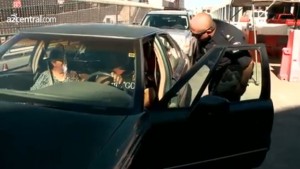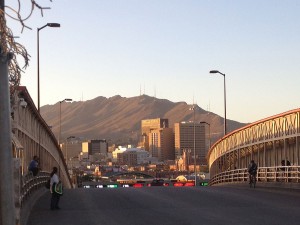Interior border checks spur suit
|
By Bob Ortega
Border Patrol agents routinely violate the constitutional rights of local residents in southern Arizona when they stop drivers at interior checkpoints on major highways and state routes near the border, according to an official complaint filed Wednesday. The complaint sent to Homeland Security’s Office for Civil Rights and Civil Liberties alleges that checkpoint agents conduct searches and detain people without justification, and use immigration enforcement as a pretext for “fishing expeditions” for potential criminal activity. The American Civil Liberties Union complaint details alleged violations against 15 U.S. citizens. It is the latest in a series of complaints about the checkpoints, where drivers passing through are ostensibly stopped and asked if they are U.S. citizens. A group of Arivaca residents recently presented a petition to the Border Patrol’s Tucson Sector chief, Manuel Padilla Jr., asking him to remove one of the three checkpoints that surround the town.

